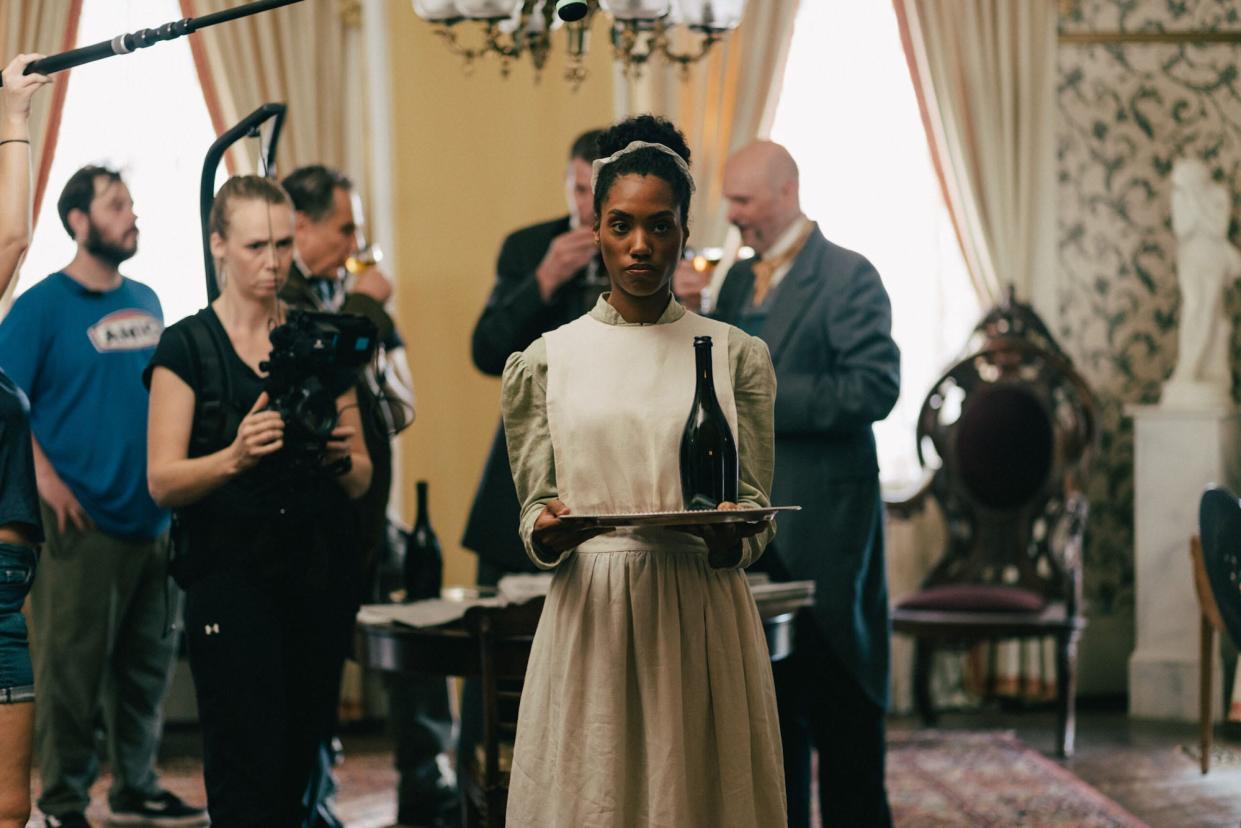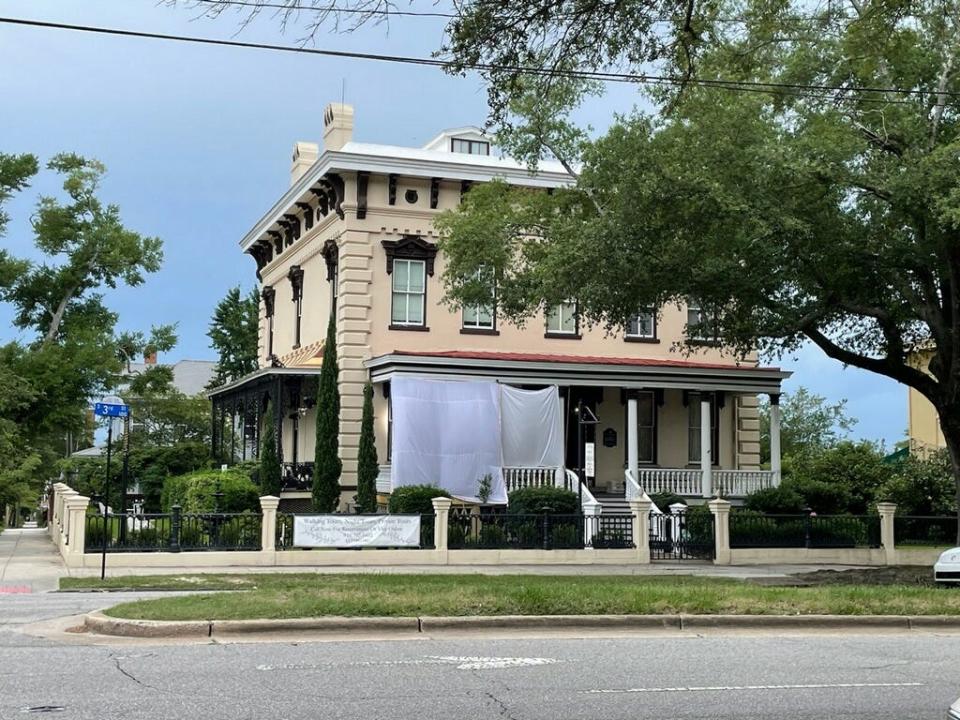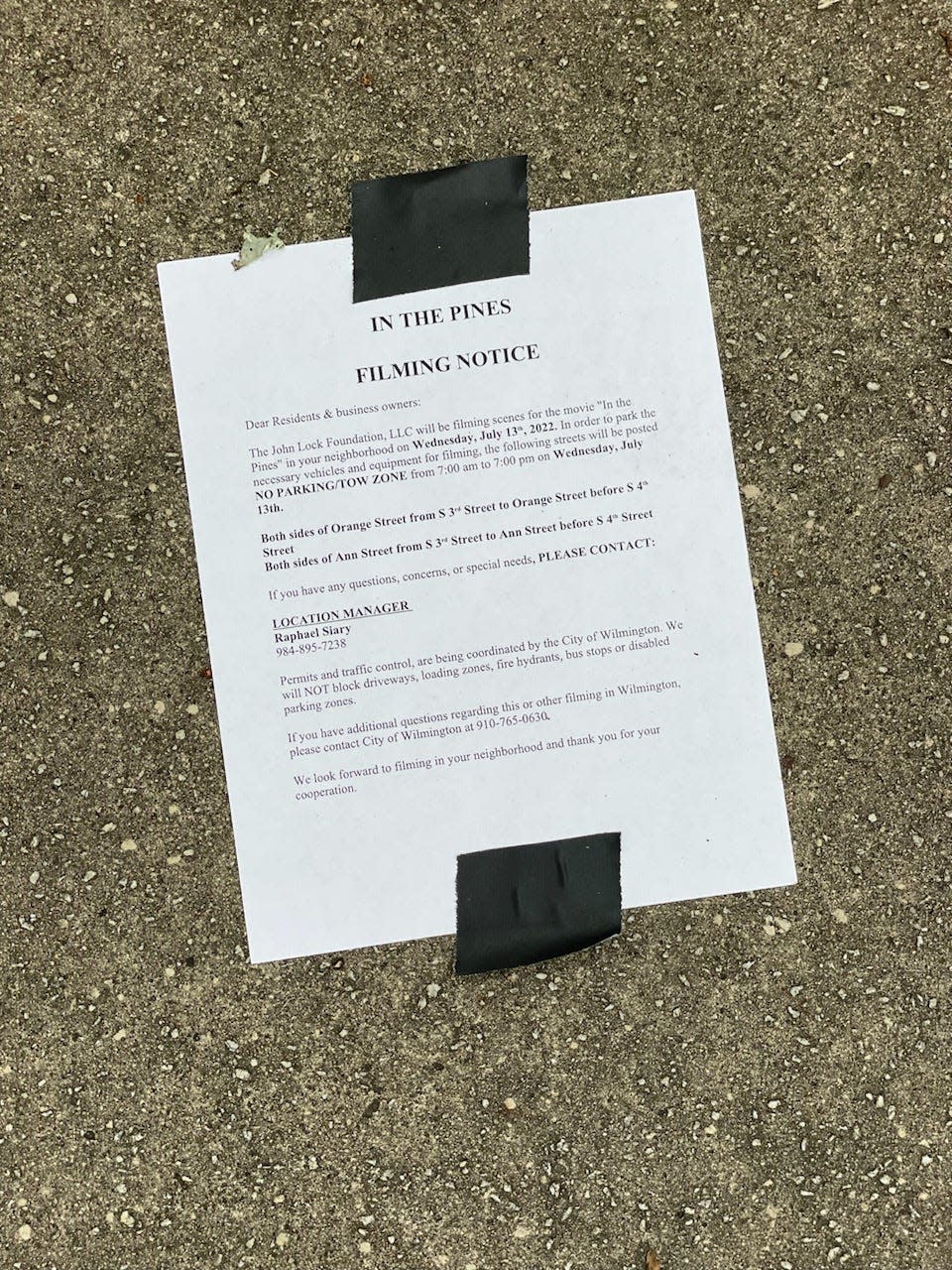Conservative group's film about 1898 Wilmington coup calls out 'Democrats and their lies'

A short film based on Wilmington's coup and massacre of 1898 has been screening at film festivals all over the world, even as its political tone and ties to a deeply conservative North Carolina think tank have raised questions about the film's intent.
"In the Pines" was shot in Wilmington last year and used such locations as the historic, 19th century Latimer House on Third Street. Directed by Dugan Bridges, the film was produced by Greg de Deugd of the John Locke Foundation (JLF), a nonprofit group that champions conservative political causes.
One of numerous mass attacks nationwide on Black by whites in the late 19th and early 20th century, the Wilmington massacre is recognized by historians as the only successful coup on American soil and marks its 125th anniversary this year.
Even before it began filming, "In the Pines" attracted attention, with opinion writer Paige Masten of The Charlotte Observer last year expressing skepticism over the film's intent and criticizing the John Locke Foundation's description of it as a "captivating, fast-paced love story."
"Because apparently, we need to romanticize white supremacy and murder," Masten wrote. "There’s nothing romantic about institutionalized racism."
Former John Locke CEO Amy Cooke responded with an editorial of her own in The Carolina Journal, a website run by her group, writing, "The only successful coup on American soil was violent, deadly, and led by Democrats ... a group of Democrat white supremacists, with help from the Democrat-controlled media, overthrew the duly elected biracial, fusionist (Republican and populist) Wilmington city council."
Cooke went on to say that "in addition to decimating Wilmington’s black population, the massacre secured a century of Democrat statewide political domination."
The film, which de Deugd terms "historical fiction," focuses on the character of Scarlett Manning (Raleigh actress Pandora Broadwater), whose father runs a Black newspaper in the Wilmington of 1898 and who is based on real-life Black Wilmington newspaper editor Alexander Manly. Manly's editorial pushing back against white claims of Black men being a danger to white women was reprinted in white newspapers of the day, including the predecessor of the StarNews, and was used to whip up racial animosity against Blacks.
On Nov. 10, 1898, after a biracial, progressive coalition of Republicans had lost an election to Democrats, a white supremacist mob organized by leading Wilmington residents with support from the state Democratic party forced some officeholders to resign and unleashed a campaign of terror against the Black citizens of Wilmington. Estimates vary, but dozens, possibly as many as 300, were killed, and many others, including Manly, were forced to leave town under threat of death.

"In the Pines" has screened at some 30 film festivals worldwide since the start this year, including the Benelux International Film Festival in Amsterdam. It's also screened at several North Carolina film festivals, including the Foothills Film Festival in Shelby, the Golden Hour Film Festival in Morganton and the Raleigh Arts & Film Festival at N.C. State University. Upcoming screenings will be at libraries in Edenton (Oct. 26) and Asheboro (Nov. 2).
Producer de Deugd said the film wasn't submitted to Wilmington's Cucalorus Film Festival and Brenee Goforth, media manager and communications associate with the John Locke Foundation, said there are currently no plans to show the film in Wilmington.
"We may do a library preview screening over there, but we do not have any firm details yet," Goforth said.
De Deugd said he'd like to do something "more special" than a library screening and that "I look forward to screening this in Wilmington."
The trailer for the film takes a sharply political tone, mirroring the language of John Locke CEO Cooke when Broadwater's character says her Black newspaperman father "was the only one standing up to the Democrats and their lies."
At the end of the trailer, an actor playing a film director conducting an interview about 1898 condescendingly asks his subject, "Could you say that again? Only this time use the word 'white supremacists.'"
De Deugd said the scene, "Telling her to use the word 'white supremacist,' you know, downplay the political angle and play up the racial angle," was meant to show how the interpretation of history can be influenced by the person presenting it.
De Deugd, for example, said he takes issue with David Zucchino's acclaimed, Pulitzer-Prize winning book on 1898, "Wilmington's Lie," saying, "It's almost like you're trying to blame Wilmington, the city ... Blaming people in the current day for things that happened in the past. In history, it's not helpful to assign blame."

As for the frequent mention of "Democrats" in the film's trailer, and in former John Locke CEO Cook's defense of it, de Deugd said the intent of "In the Pines" is not to tie the current-day Democratic Party to the events of 1898.
"People have said that, but it's not what we're doing," de Deugd said. "A lot of people on the right want to 'own the libs.' This wasn't that. We just wanted to get the truth out there."
De Deugd acknowledged that, since the John Locke Foundation delves into politics, people are likely to bring their political views to the film.
"We expected some pushback," he said. "But most of the pushback was from conservatives," questioning whether JLF should take on a subject like 1898.
De Deugd claimed the left has used 1898 as a political cudgel against the right: "They'll say, 'The Democrats of 1898 were like you guys today.' But it's not really accurate to say that the parties 'switched.'"
Still, the fact remains that most Black voters were aligned with the Republican Party in 1898. Fast forward to 2016, and an overwhelming 87% of Black voters "identify with the Democratic Party or lean Democratic," according to a Pew Research Center survey.
The JLF hasn't traditionally dabbled in filmmaking, de Deugd said, and the genesis of the film came from "us building up video capabilities" and wanting to do "more storytelling about North Carolina history."
Eventually, he said, "In the Pines" will get some sort of release, possibly online, and the JLF is considering expanding the short into a feature-length film.
"In the Pines" isn't the first film or book to dramatize the events of 1898. Black writer Charles W. Chesnutt's 1901 novel "The Marrow of Tradition" was one of the first. In 2020, it was discovered that late "Raisin in the Sun" author Lorraine Hansberry had written an unfinished play based on the novel titled "Marrow."
"Cape Fear Rising," a 1994 novel by late Wilmington writer Philip Gerard, unearthed the events of 1898 in advance of its 100-year commemoration in 1998, a time when most Wilmingtonians had never heard of the massacre.
At least one other short film and two stage productions in Wilmington have explored the events of 1898, including this year in the play "Wilmington Reconstructed" from Mouths of Babes theater group.
There's also Wilmington filmmaker Chris Everett's well-regarded 2015 documentary on 1898, "Wilmington on Fire," which has a follow-up, "Wilmington on Fire: Chapter II" coming out soon.
This article originally appeared on Wilmington StarNews: John Locke Foundation 1898 film In the Pines calls out Democrats

